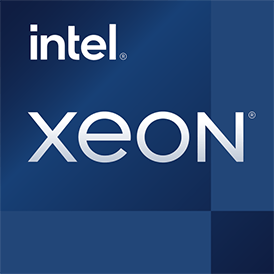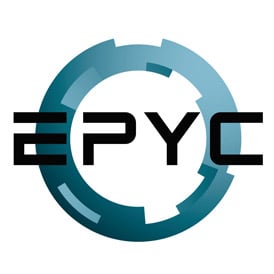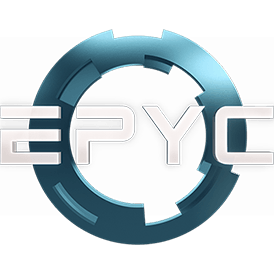Intel Xeon E7-4880 v2 vs AMD EPYC 9254
Last updated:
CPU comparison with benchmarks

|

|
|
| Intel Xeon E7-4880 v2 | AMD EPYC 9254 | |
CPU comparisonIntel Xeon E7-4880 v2 or AMD EPYC 9254 - which processor is faster? In this comparison we look at the differences and analyze which of these two CPUs is better. We compare the technical data and benchmark results.
The Intel Xeon E7-4880 v2 has 15 cores with 30 threads and clocks with a maximum frequency of 3.10 GHz. Up to 1536 GB of memory is supported in 4 memory channels. The Intel Xeon E7-4880 v2 was released in Q1/2014. The AMD EPYC 9254 has 24 cores with 48 threads and clocks with a maximum frequency of 4.15 GHz. The CPU supports up to 6144 GB of memory in 12 memory channels. The AMD EPYC 9254 was released in Q4/2022. |
||
| Intel Xeon E7 (20) | Family | AMD EPYC (129) |
| Intel Xeon E7 v2 (20) | CPU group | AMD EPYC 9004 (21) |
| 4 | Generation | 4 |
| Ivy Bridge EX | Architecture | Genoa / Genoa-X (Zen 4) |
| Desktop / Server | Segment | Desktop / Server |
| -- | Predecessor | -- |
| -- | Successor | AMD EPYC 9255 |
|
|
||
CPU Cores and Base FrequencyThe Intel Xeon E7-4880 v2 is a 15 core processor with a clock frequency of 2.50 GHz (3.10 GHz). The AMD EPYC 9254 has 24 CPU cores with a clock frequency of 2.90 GHz (4.15 GHz). |
||
| Intel Xeon E7-4880 v2 | Characteristic | AMD EPYC 9254 |
| 15 | Cores | 24 |
| 30 | Threads | 48 |
| normal | Core architecture | normal |
| Yes | Hyperthreading | Yes |
| No | Overclocking ? | No |
| 2.50 GHz | Frequency | 2.90 GHz |
| 3.10 GHz | Turbo Frequency (1 Core) | 4.15 GHz |
| 3.10 GHz | Turbo Frequency (All Cores) | 3.90 GHz |
Memory & PCIeThe Intel Xeon E7-4880 v2 supports a maximum of 1536 GB of memory in 4 memory channels. The AMD EPYC 9254 can connect up to 6144 GB of memory in 12 memory channels. |
||
| Intel Xeon E7-4880 v2 | Characteristic | AMD EPYC 9254 |
| DDR3-1600 | Memory | DDR5-4800 |
| 1536 GB | Max. Memory | 6144 GB |
| 4 (Quad Channel) | Memory channels | 12 |
| 51.2 GB/s | Max. Bandwidth | 460.8 GB/s |
| Yes | ECC | Yes |
| -- | L2 Cache | 24.00 MB |
| 38.00 MB | L3 Cache | 128.00 MB |
| -- | PCIe version | 5.0 |
| -- | PCIe lanes | 128 |
| -- | PCIe Bandwidth | 504.1 GB/s |
Thermal ManagementThe TDP (Thermal Design Power) of a processor specifies the required cooling solution. The Intel Xeon E7-4880 v2 has a TDP of 130 W, that of the AMD EPYC 9254 is 200 W. |
||
| Intel Xeon E7-4880 v2 | Characteristic | AMD EPYC 9254 |
| 130 W | TDP (PL1 / PBP) | 200 W |
| -- | TDP (PL2) | -- |
| -- | TDP up | 240 W |
| -- | TDP down | -- |
| -- | Tjunction max. | 100 °C |
Technical detailsThe Intel Xeon E7-4880 v2 has a 38.00 MB cache, while the AMD EPYC 9254 cache has a total of 152.00 MB. |
||
| Intel Xeon E7-4880 v2 | Characteristic | AMD EPYC 9254 |
| 22 nm | Technology | 5 nm |
| Monolithic | Chip design | Chiplet |
| x86-64 (64 bit) | Instruction set (ISA) | x86-64 (64 bit) |
| SSE4.1, SSE4.2, AVX | ISA extensions | SSE4.2, AVX2, AVX-512, BFLOAT16, VNNI |
| LGA 2011 | Socket | SP5 |
| VT-x, VT-x EPT, VT-d | Virtualization | AMD-V, SVM |
| Yes | AES-NI | Yes |
| Windows 10, Linux | Operating systems | Windows Server 2022, Linux, Windows 11 |
| Q1/2014 | Release date | Q4/2022 |
| 4000 $ | Release price | 2299 $ |
| show more data | show more data | |
Rate these processors
Geekbench 5, 64bit (Single-Core)
Geekbench 5 is a cross plattform benchmark that heavily uses the systems memory. A fast memory will push the result a lot. The single-core test only uses one CPU core, the amount of cores or hyperthreading ability doesn't count.
|
|
Intel Xeon E7-4880 v2
15C 30T @ 3.10 GHz |
||
|
|
AMD EPYC 9254
24C 48T @ 4.15 GHz |
||
Geekbench 5, 64bit (Multi-Core)
Geekbench 5 is a cross plattform benchmark that heavily uses the systems memory. A fast memory will push the result a lot. The multi-core test involves all CPU cores and taks a big advantage of hyperthreading.
|
|
Intel Xeon E7-4880 v2
15C 30T @ 3.10 GHz |
||
|
|
AMD EPYC 9254
24C 48T @ 3.90 GHz |
||
Geekbench 6 (Single-Core)
Geekbench 6 is a benchmark for modern computers, notebooks and smartphones. What is new is an optimized utilization of newer CPU architectures, e.g. based on the big.LITTLE concept and combining CPU cores of different sizes. The single-core benchmark only evaluates the performance of the fastest CPU core, the number of CPU cores in a processor is irrelevant here.
|
|
Intel Xeon E7-4880 v2
15C 30T @ 3.10 GHz |
||
|
|
AMD EPYC 9254
24C 48T @ 4.15 GHz |
||
Geekbench 6 (Multi-Core)
Geekbench 6 is a benchmark for modern computers, notebooks and smartphones. What is new is an optimized utilization of newer CPU architectures, e.g. based on the big.LITTLE concept and combining CPU cores of different sizes. The multi-core benchmark evaluates the performance of all of the processor's CPU cores. Virtual thread improvements such as AMD SMT or Intel's Hyper-Threading have a positive impact on the benchmark result.
|
|
Intel Xeon E7-4880 v2
15C 30T @ 3.10 GHz |
||
|
|
AMD EPYC 9254
24C 48T @ 3.90 GHz |
||
Devices using this processor |
|
| Intel Xeon E7-4880 v2 | AMD EPYC 9254 |
| Unknown | Unknown |
Popular comparisons containing this CPUs
back to index


